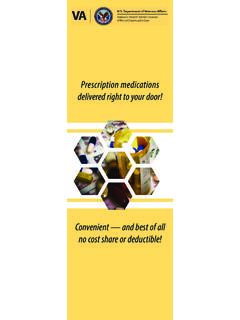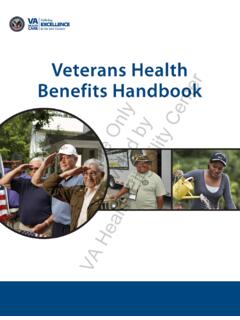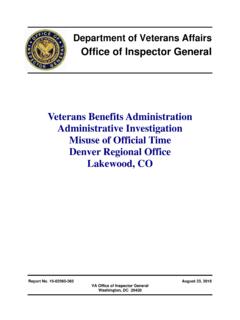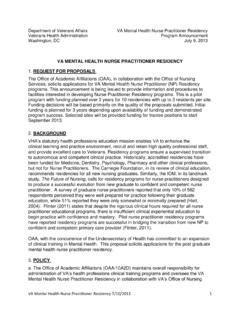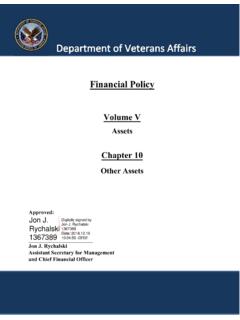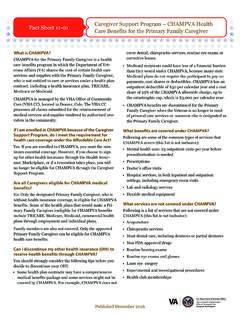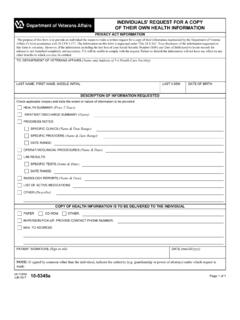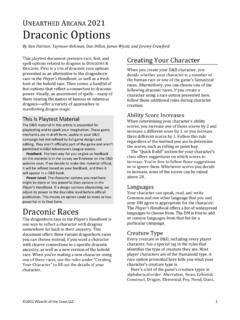Transcription of FORGIVENESS: THE GIFT WE GIVE OURSELVES
1 forgiveness : THE gift WE give OURSELVES . Anger is an acid that can do more harm to the vessel in which it is stored than to anything on which it is poured. Mark Twain Holding on to anger and resentment can be a very painful, and potentially harmful, process. As Stephen Hayes, one of the founders of Acceptance and Commitment Therapy said, Unforgiveness is like being on a giant hook. Next to you on the hook is the person who has hurt you. The hook is extremely painful. Wherever you go, so does the hook and so does the offender. The only way you can get off the hook is if you allow the offender off first. The cost of not allowing the offender off the hook is, perhaps, a lifetime of unhappiness.
2 Just as hostility is noted to have many negative effects,[1] forgiveness is shown to bring many benefits to the forgiver. Some of beneficial effects include the following:[2-12]. Improved mental health Improved well-being Reduced negative emotions Improved satisfaction with life Fewer physical ailments Reduced fatigue Better sleep quality Reduced vulnerability to chronic pain Less stress Lowered levels of disordered eating behavior WHAT IS forgiveness ? forgiveness can be defined as a freely made choice to give up revenge, resentment, or harsh judgments toward a person who caused a hurt, and to strive to respond with generosity, compassion, and kindness toward that person. [13]. When we think of forgiveness , what comes to mind most often is about forgiving an offender.
3 However, there are other forms of forgiveness as well: We may struggle to forgive OURSELVES . We may find OURSELVES needing to ask someone else for forgiveness . We may need to accept a request for forgiveness . We may find OURSELVES needing to find forgiveness related to existential concerns. An example of this would be the need to forgive the world for the suffering that is present in it, or to forgive God for not preventing a death. VA Office of Patient Centered Care and Cultural Transformation Page 1 of 5. forgiveness : The gift We give OURSELVES In forgiveness work, a person must come to recognize that suffering is not directed at us alone; rather, it is part of human experience. forgiveness is a challenging area for most people, and confusion often exists about what it entails.
4 The following are important points to keep in mind about forgiveness : forgiveness does not require us to reconcile with the offender and have continued contact. There are times when it is in our best interest to stay away from the offender. forgiveness is a process that can take time; it is not just a decision we make quickly. To forgive generally requires some emotional and mental energy on our part. (Refer to The Stages of forgiveness below.). To forgive means that we have to fully accept what actually happened, how we were hurt, how our lives were affected by the offense, and even how we have changed as a result. When we do not forgive, we continue to give the offense and the offender power over us.
5 To forgive is to become free to move forward. We need never forget what happened. In spite of our continued memory of the event, we nevertheless forgive and live life in the present. forgiveness does not relieve offenders of their responsibility. If it is necessary to pursue justice, we can still take the action that is needed, such as pressing legal charges, filing complaints, or otherwise appropriately addressing concerns. DECIDING TO FREE OURSELVES FROM PAIN: CHOOSING forgiveness . No one can make this decision for us. We must be ready to reclaim the parts of our life that were affected. We may need assistance to do this, depending on such factors as who perpetrated the offense (oneself, a family member, a stranger, etc.)
6 And the amount of suffering or loss involved. We might benefit from using a journal to write down our thoughts or to work through the process. Depending on the situation, it might also be helpful to talk with a trusted friend, clergy member, or therapist. Mobilize whatever resources will support you in this before continuing. If you find that you are becoming distressed, stop the activity and consider obtaining professional assistance. THE STAGES OF forgiveness . forgiveness researchers Enright and Fitzgibbons provided four stages of forgiveness :[13]. Uncovering. This stage is about gathering information about how the offense has hurt us, changed us, or cost us. Often this includes reflection on how it has preoccupied us mentally or emotionally.
7 Decision. Once we understand how not forgiving has cost us and what forgiveness is, we can decide to commit to the process. VA Office of Patient Centered Care and Cultural Transformation Page 2 of 5. forgiveness : The gift We give OURSELVES Work. This stage is challenging. We work to gain a deeper understanding of the offender, our self, and the relationship, as applicable. During this stage, we begin to experience more empathy and compassion for our self and for the perpetrator. Deepening. Finding meaning in the suffering might include becoming more connected to others or recognizing that suffering is universal. To forgive is to set a prisoner free and discover that the prisoner was you Lewis B.
8 Smedes WHEN YOU ARE COMFORTABLE EXPLORING A GRIEVANCE, CONSIDER. THE FOLLOWING. Are there events or situations in which you feel that you have been wronged and which continue to bother you? How did the event(s) change you? Did it change how you view your world, yourself, and others? What emotions are still present? Anger? Guilt? Shame? Hurt? Others? What has holding on to this cost you in terms of time, relationships, energy, happiness, Has it affected your health? Your sleep? How often does the event come to mind? How often do you dwell on it? What particular benefits might come to you if you were able to emotionally forgive the offense and/or the offender? Do you feel ready to do the work of forgiveness in order to free yourself from the past?
9 Can you decide that forgiveness is for you and not the offender? If yes, continue with the following questions: o What is left to express to the offender or about what happened to you? Write it down, express it through creative means such as drawing, or talk it out. You can also write a letter to the offender, outlining what is unexpressed. There is no need to send it out unless that is important to you. o Have you needed forgiveness yourself from another person at some time? What was that experience like, and how did you feel? Recognize that everyone has been both the forgiven and the forgiver at some point. o Is some of what you experienced through the offense actually impersonal (not really about you) but rather related to the suffering that is experienced by others on this planet?
10 O If you put yourself in the other person's place, it can create empathy. You may ask, what led them to do what they did? This empathy, however, does not mean that their behavior is condoned. What can you learn from this experience? How can this connect you more with others? How can more of your energy go into what you value? (Refer to the Values tool.). Appreciate that the process may take time or additional resources. Refer to the forgiveness Resources section at the end of this handout. VA Office of Patient Centered Care and Cultural Transformation Page 3 of 5. forgiveness : The gift We give OURSELVES forgiveness is an absolute necessity for continued human Bishop Desmond Tutu RESOURCES.
